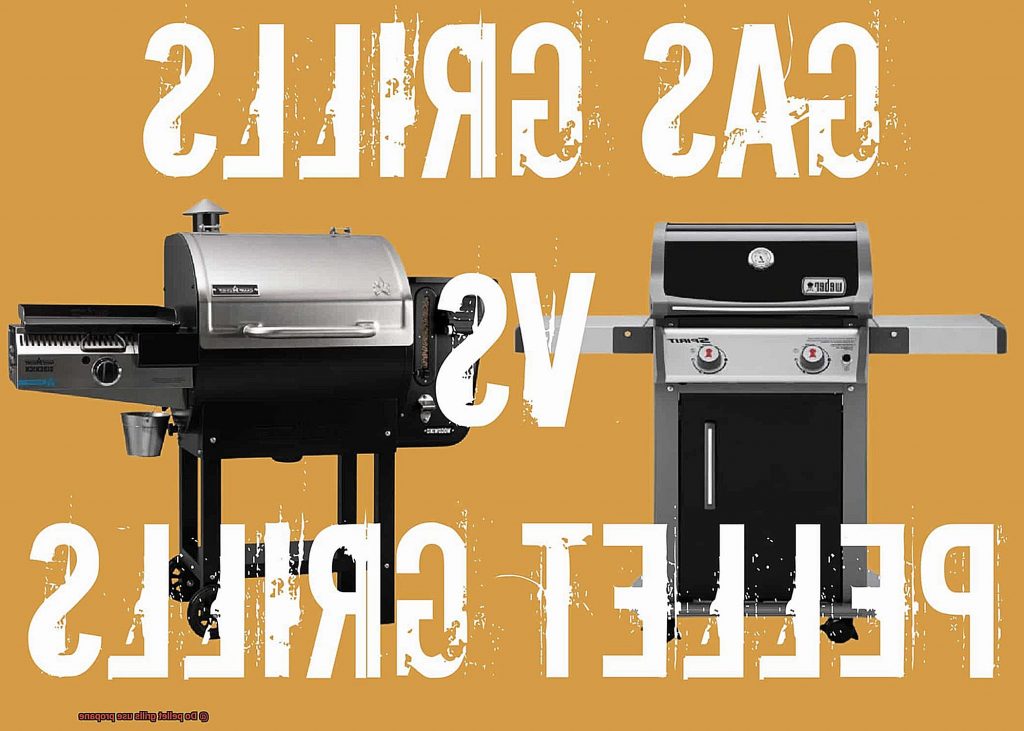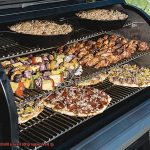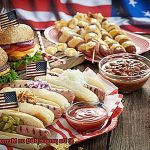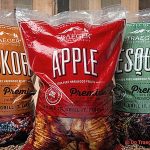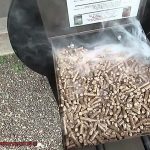Are you a die-hard barbecue fan who loves the smoky aroma of grilled meat? If yes, then you must have heard about pellet grills. These outdoor cookers have become a rage among BBQ enthusiasts because of their unique combination of convenience, diversity, and taste. Pellet grills use wood pellets as their primary fuel source, but can they run on propane too?
Choosing the right fuel source for your grill can be overwhelming with so many options available in the market. From charcoal to propane, it’s tough to decide which one to choose. However, pellet grills offer an unmatched versatility that allows you to smoke, stew, and even bake your favorite dishes.
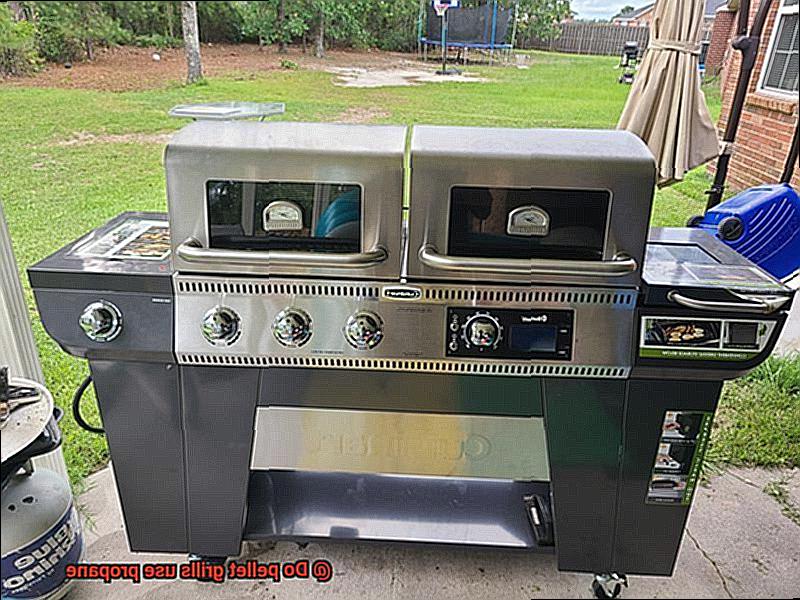
While pellet grills are designed to run on wood pellets, some users may consider alternative fuels like propane. But can you use propane on pellet grills? The answer is not straightforward and requires an understanding of the dynamics and science behind these cooking appliances.
In this article, we will take a deep dive into the world of pellet grills and answer the question – do pellet grills use propane? We will also explore the pros and cons of both fuel sources, their differences in terms of taste and cooking experience. So get ready to embark on a fascinating journey into the world of pellet grills.
Contents
Does a Pellet Grill Use Propane?
These appliances have become increasingly popular in recent years due to their convenience and ease of use. But what about fuel source? Does a pellet grill use propane?
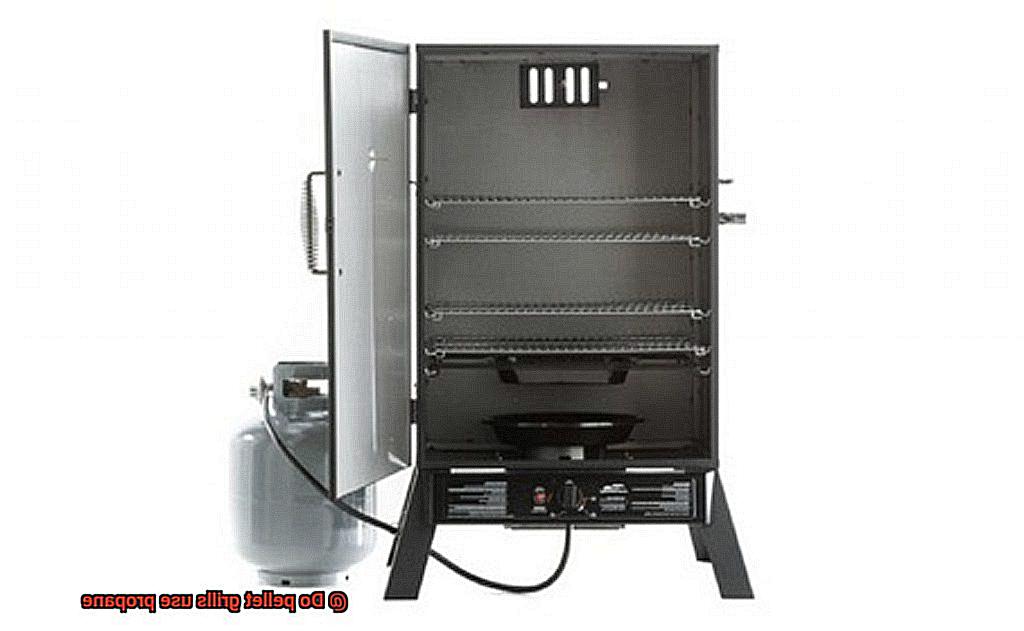
The answer is both yes and no. While pellet grills do not use propane as a primary fuel source, some models may have the option to use it as a backup. However, this is not necessary for their primary function. Instead, pellet grills rely on electricity to power the auger that feeds wood pellets into the firepot.
Pellet grills work by using compressed sawdust pellets as a fuel source. The pellets are placed in a hopper at the back of the grill, and the auger feeds them into the firepot. Here, they are ignited by an electric heating element, and the resulting smoke and heat cook your food to perfection.
One major advantage of pellet grills over traditional gas grills is that they produce less smoke and fewer flare-ups. This makes them safer and more convenient to use, especially for those who live in apartments or have limited outdoor space. Additionally, because they use wood pellets as a fuel source, they can add a unique smoky flavor to your food that you simply can’t get with a gas grill.
It’s important to note that while some pellet grills may have the option to use propane, this is generally not recommended. Using propane can affect the flavor of your food and may also cause damage to the grill over time.
Pros and Cons of Using Propane in a Pellet Grill
Pellet grills have taken the grilling world by storm, and for good reason. They offer convenience and versatility that traditional charcoal grills simply can’t match. However, some grill enthusiasts still wonder if pellet grills can use propane as a fuel source. The answer is yes, but not in the way you might think.
While hardwood pellets are the primary fuel source for pellet grills, some models do have the option to use propane as well. This is typically in the form of a propane-powered ignition system that allows for quick and easy startup of the grill. But what are the pros and cons of using propane in a pellet grill? Let’s take a closer look.
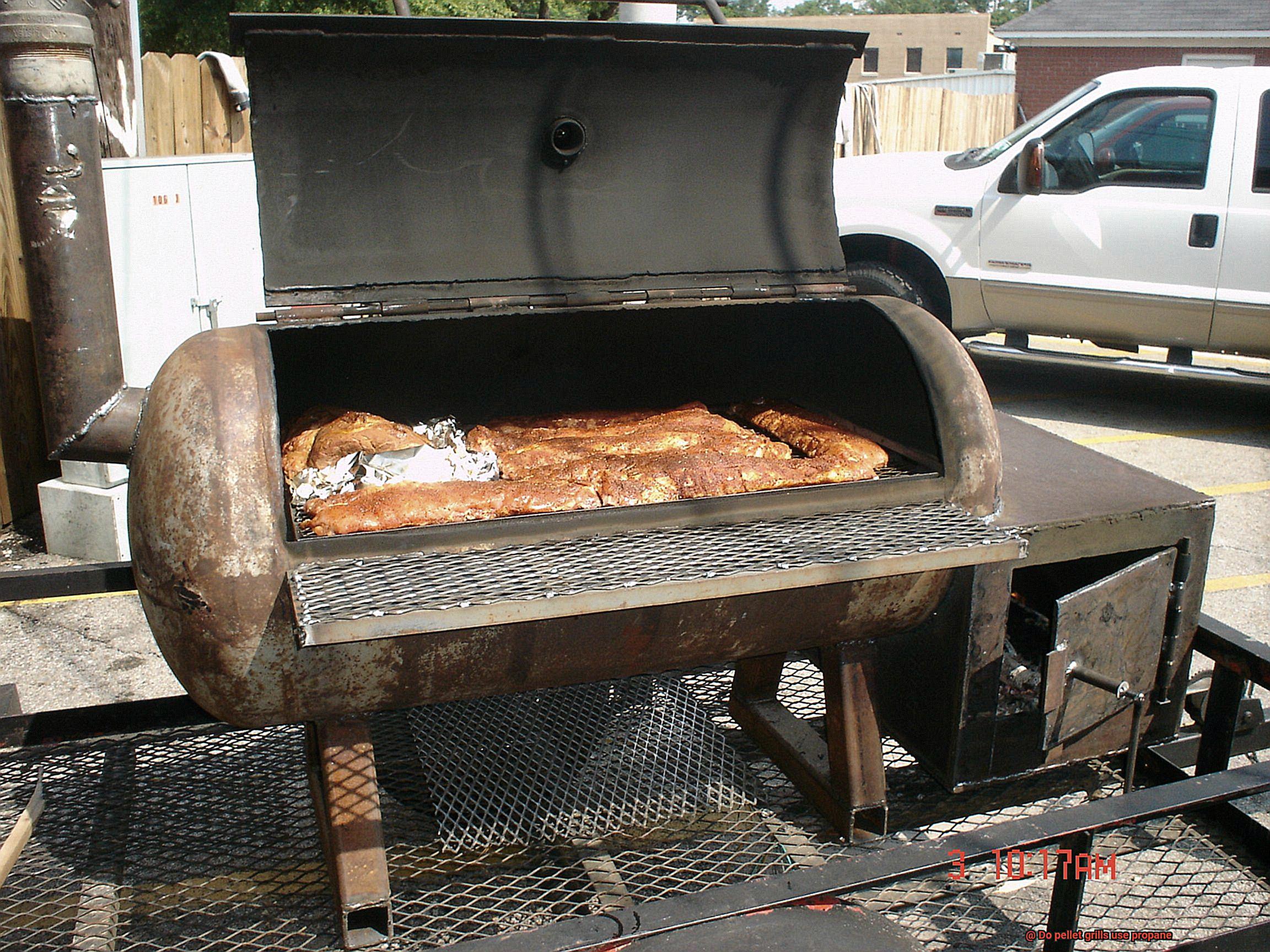
Pros:
- Quick and easy startup: With a propane-powered ignition system, starting your pellet grill is as easy as pushing a button. This eliminates the need for lighter fluid or matches, making the process quicker and safer.
- Consistent heat: Propane burns at a consistent temperature, which can help maintain a steady heat level in your pellet grill. This is particularly helpful for those who struggle with maintaining consistent temperatures during their cook.
- Backup option: Running out of wood pellets mid-cook can be frustrating, but having the option to switch to propane can be a lifesaver. It’s always good to have a backup plan.
Cons:
- Additional cost: Adding a propane-powered ignition system to your pellet grill can add an additional cost to your purchase. While it’s not necessary, it can be convenient for those who want quick and easy startup.
- Possible flavor alteration: Wood pellets are beloved by many because they impart a smoky flavor to food that is hard to replicate with any other fuel source. Some users report that using propane can alter the flavor of their food, which may not be desirable.
- Risk of flare-ups: Propane burns hotter than wood pellets, which can lead to flare-ups and charred food if not monitored closely. This is particularly true for those who are new to using propane in their pellet grill.
Ultimately, the decision to use propane in a pellet grill comes down to personal preference. While some grill enthusiasts enjoy the convenience of propane, others prefer the unique flavor that wood pellets bring to their food. It’s worth noting that there are pros and cons to both options, so it’s important to weigh them carefully before making a decision.
What is the Primary Fuel Source for a Pellet Grill?
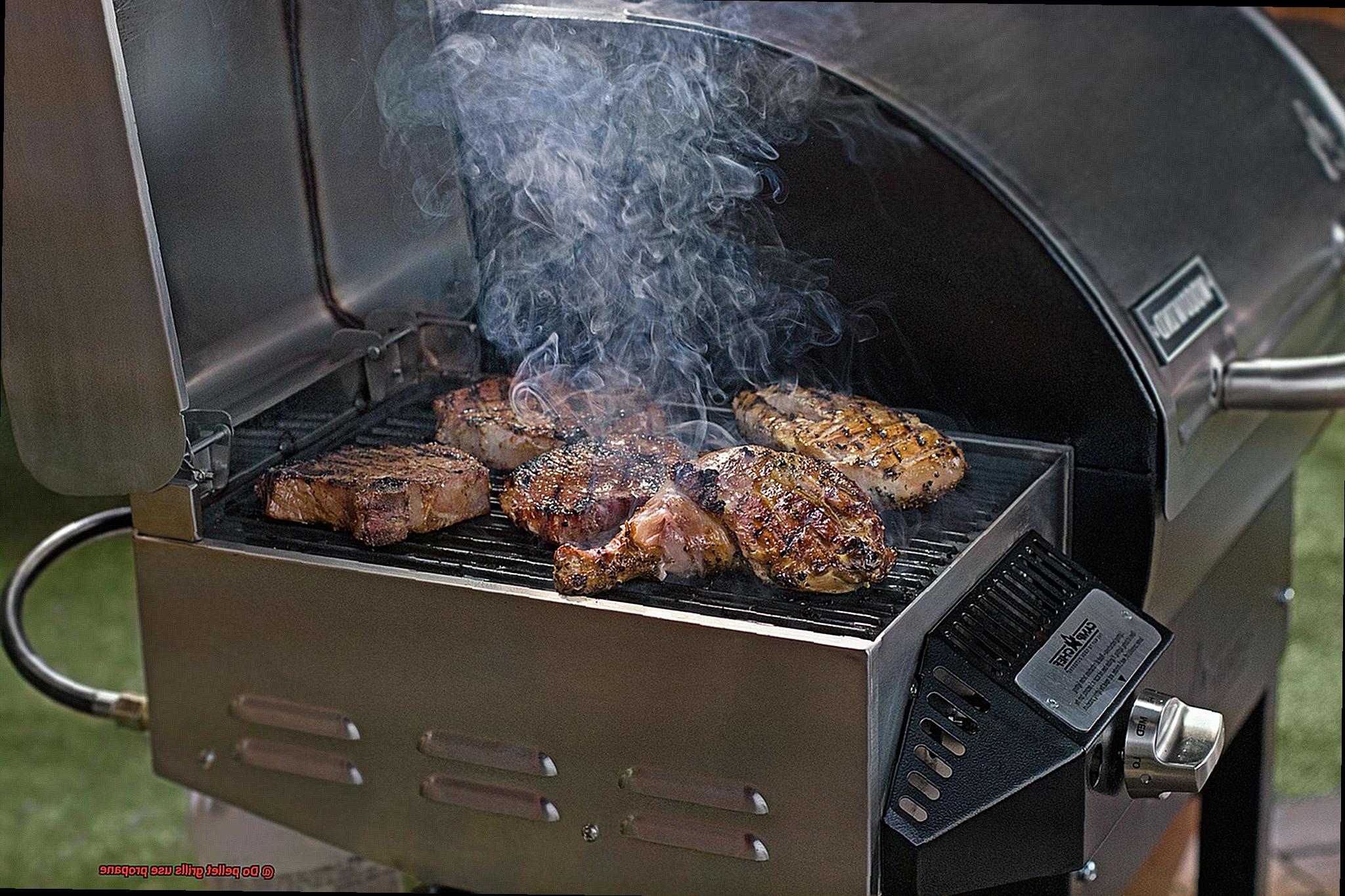
As an expert in this field, I can tell you that wood pellets are the primary fuel source for pellet grills. Made from compressed sawdust and wood shavings, they come in a variety of flavors, including hickory, mesquite, and applewood, to add a delicious smoky taste to your food.
But how do pellet grills actually work? Unlike gas or propane grills, they don’t require a direct source of fuel to ignite. Instead, they use an electric starter and a small fan to ignite the pellets and maintain the temperature.
So, what about propane? While some pellet grills offer a propane option for added convenience, it’s not necessary for the grill to function. Propane can be used to ignite the wood pellets, but wood pellets remain the primary fuel source for this type of grill.
How to Ignite Wood Pellets in a Pellet Grill
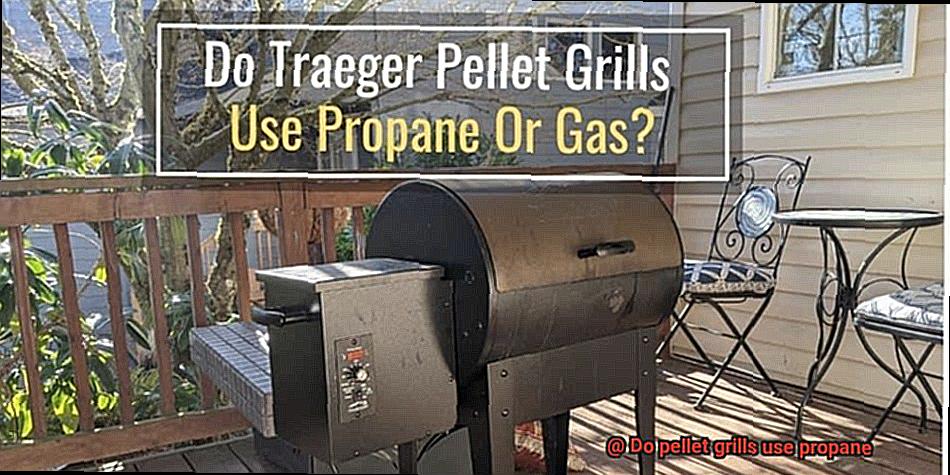
Don’t worry; we’ve got you covered. Igniting wood pellets in a pellet grill is a straightforward process that can be done in just a few simple steps. Here’s a more detailed breakdown of the process:
Step 1: Fill the Hopper with Wood Pellets
The hopper is the container on the side of the grill that holds the wood pellets. Make sure it is filled with enough wood pellets to last for the duration of your cook. It’s important to use high-quality wood pellets that are appropriate for your recipe.
Step 2: Turn on the Pellet Grill
After filling the hopper, turn on the pellet grill and set it to your desired temperature. The temperature can be adjusted using the digital control panel on the front of the grill. Allow the grill to preheat for about 10-15 minutes before adding any food.
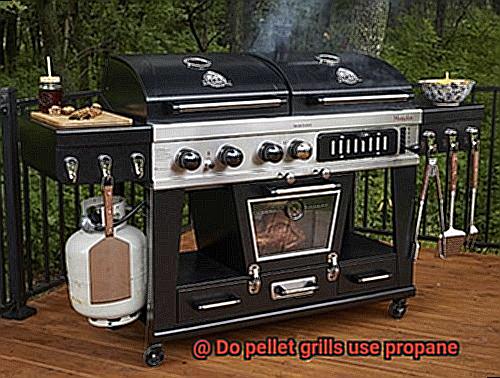
Step 3: Locate the Igniter Rod
The igniter rod is usually located inside the grill towards the bottom and glows red when it’s heated. Take a moment to locate it before starting the ignition process.
Step 4: Press the Ignition Button
Once you have located the igniter rod, press the “ignition” button on your pellet grill’s control panel. This will activate the igniter rod and start heating up the wood pellets.
Step 5: Allow Wood Pellets to Ignite
After a few minutes, you should start to see smoke and flames coming from the wood pellets. This indicates that they have ignited and are ready for cooking. Close the lid of the grill and adjust the temperature as necessary for your recipe.
Step 6: Enjoy Your Grilled Food
Now that you have successfully ignited your wood pellets, it’s time to start cooking and enjoying delicious grilled food. Just remember to always follow proper safety precautions when using any type of grill or cooking appliance.
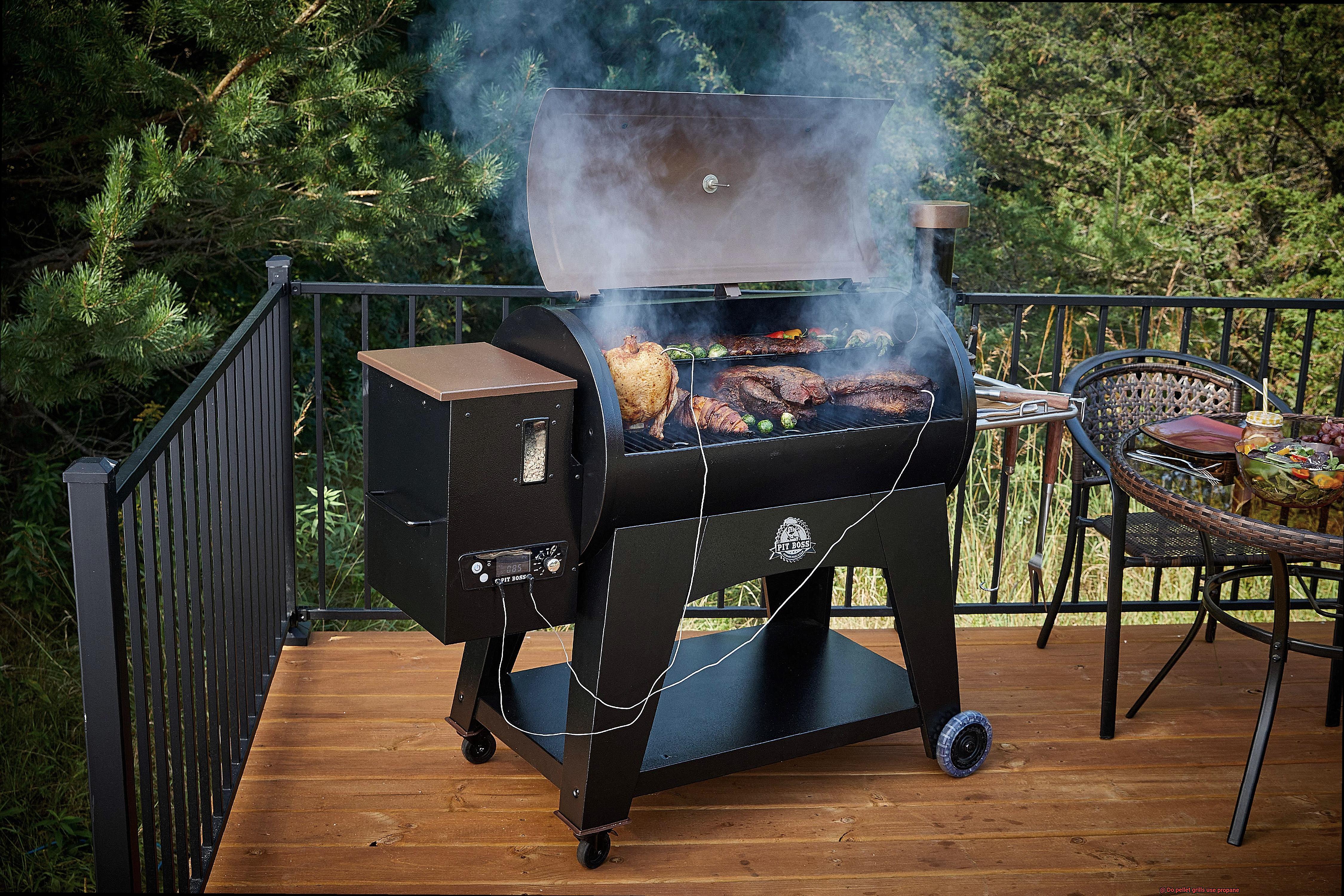
How Does Using Propane Affect the Flavor of Food on a Pellet Grill?
As a grill master, you know that flavor is everything when it comes to cooking up a delicious meal. But have you ever wondered how using propane on a pellet grill affects the taste of your food? As an expert on this topic, let me tell you – the use of propane can have both positive and negative impacts on the flavor of your grilled food.
On one hand, propane burns cleaner than wood pellets, resulting in less smoke and a milder flavor. This can be a great option for those who prefer a more subtle taste profile. However, it’s important to note that propane is still a fuel source and can impart its own unique taste to the food. So, while you may get a milder taste profile, it may not necessarily be what you’re expecting.
If you’re using a pellet grill with the option to use propane as a backup fuel source when you run out of wood pellets, be aware that heavy reliance on propane may sacrifice the smoky flavor that pellet grilling is known for. So, if you want that authentic smoky flavor, it’s best to stick with wood pellets.
It’s also worth noting that some pellet grill manufacturers specifically state that their grills should not be used with propane. Always check your owner’s manual before using any fuel source other than wood pellets.
Ultimately, the impact of using propane on the flavor of your food is subjective and depends on personal preference. Some people prefer the milder taste of grilled food cooked with propane, while others prefer the traditional smoky flavor produced by wood pellets. So, experiment with different fuel sources to find out what works best for you.
What Are the Benefits of Cooking with Wood Pellets?
Then look no further than cooking with wood pellets. As an expert in the field, I’m here to tell you about all the benefits of using wood pellets as a fuel source for your grill.
First and foremost, let’s talk about the unique flavor that wood pellets impart on food. Unlike gas or propane grills that use fuel sources that don’t affect the flavor of the food, wood pellets come in a variety of flavors, from hickory to applewood, that can transform your grilled meats, veggies, and even desserts into a mouthwatering delight. The smoky, woody taste that wood pellets add is something that gas and propane grills just can’t match.
Next up is convenience. Pellet grills have automated controls that allow users to set the temperature and cooking time, making it easy to prepare meals without having to constantly monitor the grill. Plus, the minimal ash produced by wood pellets makes cleaning up after cooking a breeze.
When it comes to the environment, using wood pellets as a fuel source is a sustainable option that reduces waste. They are made from compressed sawdust and other wood materials that would otherwise be discarded. This means that not only can you enjoy delicious grilled meals, but you can also feel good about your cooking choices.
Finally, let’s talk about cost-effectiveness. While the initial investment in a pellet grill may be higher than other types of grills, such as gas or charcoal, the cost of wood pellets is generally lower than propane or natural gas. This means that over time, pellet grills can save users money while still providing an excellent cooking experience.
Is it Necessary to Use Propane in a Pellet Grill?
Pellet grills are a popular choice, combining the convenience of gas grills with the smoky flavor of charcoal. But do you need to use propane with a pellet grill? As an expert in the field, let me assure you that propane is not necessary for a pellet grill. Here’s why:
Firstly, pellet grills use wood pellets as fuel. Unlike gas grills that rely on propane tanks to power the burners, pellet grills operate on the natural and sustainable energy source of wood pellets. These pellets are fed into the hopper and then into the firepot, where they ignite and produce heat and smoke.
Secondly, some models may come with a propane attachment but it is not used to fuel the grill. Instead, it is used for ignition purposes only. The small amount of propane is used to ignite the pellets in the firepot. This is done by turning on the gas valve and using the ignition switch or starter button to light the propane flame, which then ignites the pellets.
Thirdly, using propane for ignition is safe and easy. There are no safety risks associated with using propane to start a pellet grill. Once the pellets are burning, you can turn off the propane and let the grill run on wood pellets alone.
Are Gas Grills and Pellet Grills the Same?
As a self-proclaimed grill master, I’m often asked whether gas grills and pellet grills are the same. The short answer is no. Although both types of grills use propane as a fuel source, they differ in cooking style, flavor, and convenience.
Firstly, let’s talk about gas grills. They use direct heat to cook food, meaning that the burners produce flames that directly heat the grill grates. This method is quick and easy to use but doesn’t add any flavor to your food. So if you’re looking for that smoky taste, you may want to consider a different type of grill.
On the other hand, pellet grills use indirect heat to cook food. The wood pellets are heated by a fire pot and fan, creating smoke and indirect heat that cooks your food slowly and evenly. This process imparts a delicious smoky flavor to your meats, making pellet grills a popular choice among barbecue enthusiasts.
Moreover, the convenience factor should also be considered when choosing a grill. Gas grills are generally easier to use than pellet grills because they can be turned on and off with a simple push of a button. Pellet grills require more preparation and maintenance because they need to be filled with wood pellets and monitored throughout the cooking process.
To summarize, gas and pellet grills are not the same. Gas grills provide a quick and easy cooking experience without any added flavor, while pellet grills offer that authentic smoky taste but require more effort. Ultimately, it comes down to personal preference and what type of cooking experience you want to have.
EJqllBPDM18″ >
Conclusion
In conclusion, pellet grills have revolutionized the world of BBQ with their convenience, versatility, and mouth-watering smoky flavor. Although wood pellets are the primary fuel source for these grills, some models may offer the option to use propane as a backup or for ignition purposes only. However, it’s important to note that using propane can negatively affect the flavor of your food and even damage your grill in the long run.
Pellet grills offer numerous advantages over traditional gas grills, including less smoke and fewer flare-ups, making them safer and more convenient to use. Not only that but they also provide a sustainable option that reduces waste and saves money in the long run.
When it comes down to choosing between propane and wood pellets as a fuel source for your grill, it ultimately boils down to personal preference. While propane may be quicker and easier to use, wood pellets add a unique smoky flavor that cannot be replicated with any other fuel source.
In summary, whether you choose to use propane or stick with wood pellets on your pellet grill depends on what type of cooking experience you’re after.

